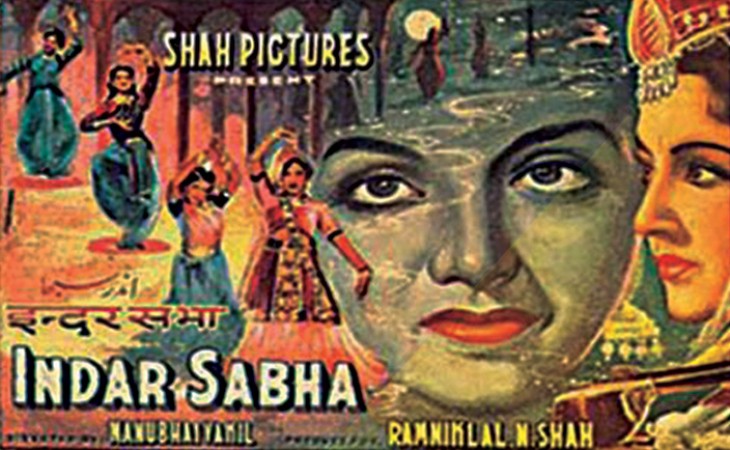
A notable Indian movie with astounding cinematic accomplishments, Indra Sabha stands out not only for its cultural importance but also for its artistic excellence. This 1932 movie, which featured an incredible 70 songs sung by Master Nissar and Kajjan Devi, was a musical extravaganza unlike any other. It holds the prestigious world record for having the most songs in a single film, a record that has persisted throughout the history of cinema and is likely to stay unbroken. Indra Sabha, in addition to being a musical marvel, is also an adaptation of the renowned Urdu play and opera "Inder Sabha," written by Agha Hasan Amanat, which is regarded as the first complete Urdu stage play ever written.
Understanding the importance of the original work, "Inder Sabha," is crucial before we dive into the film adaptation. During the rule of Bahadur Shah Zafar, the final Mughal Emperor of India, Agha Hasan Amanat, the play's original author, first staged it in 1853. It was a groundbreaking piece of art called "Inder Sabha" that combined traditional Indian musical elements with cutting-edge theatrical methods. It signaled Urdu's ascent to the status of a language for dramatic expression and paved the way for the burgeoning of Urdu literature and theater in the years to come. Amanat's play was hailed for its enchanting storytelling, enduring characters, and poetic dialogue, making it a cultural treasure of its time.
When Indian cinema was still developing in the early 1930s and talkies were revolutionizing the industry, take a step forward to that time. Aimless filmmaker J.J. Madan took on the task of turning the book "Inder Sabha" into a motion picture during this time. Indra Sabha, a movie with breathtaking song selections and mesmerizing visuals, was the outcome.
The exceptional abilities of Master Nissar and Kajjan Devi are at the core of Indra Sabha's filmography. Kajjan Devi, a well-known singer and actress, contributed to nearly 30 songs in the movie, while Master Nissar, a legendary Indian singer and actor, provided the voices for over 40 songs. A symphony of sights and sounds resulted from their performances, which gave the narrative depth and emotion. The songs showcased the diversity of Indian musical tradition, ranging from classical melodies and soulful ghazals to foot-tapping qawwalis and folk tunes.
With its wide range of songs, Indra Sabha not only produced a magical cinematic experience but also cemented its place in cinematic history. The film continues to be a testament to the original pioneers of Indian cinema's creativity and artistry because it holds the record for the most songs in a single film, a record that hasn't been broken in decades.
Indra Sabha provided a platform to safeguard and advance India's cultural heritage in addition to its cinematic accomplishments. The play's iconic status was furthered and "Inder Sabha"'s status as a classic piece of Urdu literature and theatre was furthered by the film's adaptation of the play.
The film Indra Sabha continues to be a significant turning point in cinema history and a magnificent example of the combined influence of music and narrative. It helped preserve cultural heritage and advance Indian cinema as an adaptation of the influential play "Inder Sabha." Its place in film history has been cemented by the extraordinary achievement of incorporating more than 70 songs, expertly performed by Master Nissar and Kajjan Devi, and it stands as a true gem of cinematic achievement. Filmmakers and viewers alike continue to be moved and inspired by Indra Sabha's legacy, which serves as a reminder of the enduring magic that only the world of cinema can conjure.
Beyond Two Hours: The Magic Behind Bollywood's Lengthy Narratives
Bollywood: The Birth of a Cultural Phenomenon
Love, Longing, and Loyalties: Bollywood's Timeless Love Triangles